
Key Factors That Aid In Reducing Hyperpigmentation
Key Takeaways:
- Prevention is Key: Protecting your skin from the sun with sunscreen and adopting healthy habits like hydration and a balanced diet are essential to prevent hyperpigmentation.
- Natural Remedies Work Wonders: Cold-pressed oils like rose hip, amla, and chamomile are gentle, effective options for fading pigmentation naturally.
- Professional Help is Available: For stubborn hyperpigmentation, professional treatments like chemical peels, laser therapy, and prescription creams can provide more targeted results.
Hyperpigmentation is a common skin concern that many of us face at some point. Whether it’s dark spots, uneven patches, or discoloration caused by acne, it can affect how we feel about our skin. But here’s the good news: there are plenty of ways to manage and reduce hyperpigmentation.
At Sacred Rituel, we understand how deeply hyperpigmentation impacts your skincare journey. With our expertise in crafting organic and natural products, we’re passionate about helping you achieve a brighter, healthier complexion through gentle, effective solutions.
From understanding what causes hyperpigmentation to exploring natural remedies and preventive steps, this guide will walk you through the key factors that can help brighten your skin and restore your confidence.
What Is Hyperpigmentation And Why Does It Happen?
Hyperpigmentation refers to areas of the skin that appear darker than the surrounding skin due to an excess production of melanin, the pigment responsible for skin color. This condition happens when melanin production goes into overdrive, often triggered by factors like sun exposure, hormonal changes, skin inflammation, or even certain medications. While it’s not harmful, hyperpigmentation can be frustrating to deal with.
For those looking to even out their skin tone naturally, Sacred Serum offers a gentle yet effective solution. Packed with skin-loving ingredients, it works to reduce discoloration and restore your skin’s radiant glow over time. Try Sacred Serum today!
Common Causes Of Hyperpigmentation
Understanding the triggers behind hyperpigmentation can help you prevent or manage it better. Here are some of the most common causes:
- Sun Exposure: Too much time in the sun is one of the leading culprits. UV rays stimulate melanin production as your skin tries to protect itself, which can lead to dark spots and uneven patches over time.
- Hormonal Changes: Fluctuations in hormones, especially during pregnancy or while using hormonal contraceptives, can trigger a condition called melasma. This often appears as dark, blotchy patches on the face.
- Post-Inflammatory Hyperpigmentation (PIH): After acne, cuts, or other skin injuries heal, they can leave behind dark marks or discoloration. This happens because the healing process causes an increase in melanin production.
- Aging: As we age, our skin's ability to regulate melanin diminishes, often leading to age spots or sunspots.
- Certain Medications or Health Conditions: Some medications, like certain antibiotics or chemotherapy drugs, can cause hyperpigmentation as a side effect. Additionally, medical conditions like Addison’s disease may also darken the skin.

Natural Remedies To Lighten Hyperpigmentation
If you’re looking for gentle, natural ways to lighten hyperpigmentation, cold-pressed oils can be a game-changer. These oils are packed with nutrients and antioxidants that help repair skin, reduce discoloration, and promote an even tone. Here’s a closer look at some of the most effective ones:
Rose Hip Oil
Rich in vitamins A and C, rose hip oil is a favorite for fading dark spots and scars. It promotes skin regeneration, improves elasticity, and enhances overall radiance. Its natural retinoic acid content makes it a gentle alternative to synthetic retinoids.
Amla Fruit Oil
Derived from the Indian gooseberry, amla oil is a powerhouse of antioxidants and vitamin C. It works to reduce melanin production, brighten skin, and protect against environmental damage. Regular use can help diminish existing pigmentation while preventing new spots from forming.
Pomegranate Seed Oil
This oil is a powerhouse for skin renewal, thanks to its high antioxidant content. Punicic acid, a unique omega-5 fatty acid in pomegranate seed oil, supports cell turnover and repairs damage that contributes to hyperpigmentation. It’s also a natural shield against UV damage, making it a great addition to your skincare routine for both lightening and prevention.
Geranium Extract
Geranium oil is perfect for those looking to even out their skin tone naturally. It helps regulate sebum production, which can reduce breakouts and prevent post-inflammatory hyperpigmentation. Additionally, it improves circulation in the skin, enhancing its overall brightness and helping dark spots heal more quickly.
Sacred Serum
Sacred Serum combines all these natural remedies in one powerful formula. With 15 raw, organic, cold-pressed botanical oils and 12 organic healing flowers and herbs, this serum combines the best nature has to offer to target hyperpigmentation.
Lifestyle Changes That Can Help Prevent Hyperpigmentation
Preventing hyperpigmentation often starts with small but consistent changes in your daily routine. Here are some lifestyle tips that can help keep those pesky dark spots at bay:
Commit To Sun Protection
UV exposure is one of the biggest triggers of hyperpigmentation, so sunscreen should be your best friend. Opt for a broad-spectrum sunscreen with at least SPF 30 and reapply it every two hours, especially if you’re outdoors. Don’t forget to wear sunglasses and a wide-brimmed hat for extra protection.
Avoid Picking At Your Skin
When you pick at pimples, scabs, or other irritations, you’re disrupting your skin’s natural healing process. This can lead to inflammation and trigger excess melanin production, resulting in dark spots or scars that take months to fade. Instead, use soothing treatments like aloe vera or tea tree oil to calm the area and allow your skin to heal on its own.
Maintain A Balanced Diet
What you eat has a direct impact on your skin’s health. Foods rich in antioxidants, like berries, oranges, and spinach, can neutralize free radicals that cause skin damage and pigmentation. Including omega-3-rich options like salmon or chia seeds supports skin elasticity and reduces inflammation, making your skin less prone to discoloration.
Stay Hydrated
Hydration is essential for keeping your skin healthy and radiant. Drinking enough water helps your body flush out toxins that can lead to dullness and uneven skin tone. Additionally, well-hydrated skin is more resilient, making it less likely to scar or develop pigmentation after injuries or acne.
Use Gentle Skincare Products
Overly harsh skincare products can strip your skin’s natural barrier, leaving it vulnerable to irritation and hyperpigmentation. Look for products that protect your skin while addressing specific concerns. Avoid over-exfoliating, as this can worsen inflammation and disrupt your skin's natural repair processes.
Manage Stress Levels
Chronic stress can cause a spike in cortisol, a hormone that can lead to skin issues like acne and melasma. Finding ways to relax, such as through mindfulness, regular exercise, or hobbies you enjoy, can help keep your hormones balanced. A calm mind often leads to healthier skin, as stress-free living promotes better overall body function and healing.
Professional Treatments For Stubborn Hyperpigmentation
Sometimes, natural remedies and lifestyle changes aren’t enough to tackle stubborn hyperpigmentation. In such cases, professional treatments can provide more effective and quicker results. Here are some common options:
Chemical Peels
Chemical peels involve applying a solution containing acids like glycolic, salicylic, or lactic acid to exfoliate the skin. This process removes the damaged outer layers, encouraging new, even-toned skin to emerge. Depending on the severity of your pigmentation, peels can range from mild (superficial) to deep, and they are usually done in a series for the best results.
Laser Therapy
Laser treatments work by targeting the melanin in hyperpigmented areas with intense pulses of light or laser energy. This breaks down the pigment into smaller particles that the body naturally eliminates. While effective, these treatments require precision, and your dermatologist will tailor the procedure to your skin type to avoid unwanted side effects like redness or sensitivity.
Microdermabrasion
Microdermabrasion uses a specialized device with fine crystals or a diamond tip to gently exfoliate the surface of the skin. It’s a painless procedure that removes the top layer of dead skin, which can help fade mild pigmentation and improve skin texture. Multiple sessions are often needed for noticeable improvements, making it ideal for people with lighter, surface-level discoloration.
Microneedling
Microneedling uses tiny, sterile needles to create microscopic punctures in the skin, triggering the body’s natural healing process. This boosts collagen production and accelerates the turnover of pigmented cells, leading to a more even complexion over time. It's particularly helpful for post-inflammatory hyperpigmentation and works well when combined with topical treatments like serums.
Prescription-Strength Creams
Prescription creams often contain powerful ingredients like hydroquinone, which inhibits melanin production, or tretinoin, which boosts cell turnover. These creams are applied directly to dark spots and can gradually fade pigmentation over several weeks or months. Dermatologists may also combine these with mild steroids to minimize irritation and enhance effectiveness.
Cryotherapy
Cryotherapy uses liquid nitrogen to freeze pigmented spots, causing the damaged skin cells to peel away over time. This treatment is typically reserved for small, isolated spots, like age spots or sunspots, and is quick and minimally invasive. Though effective, cryotherapy can cause temporary redness or irritation as the skin heals.

Final Thoughts
Hyperpigmentation may not be harmful, but it can be frustrating when it feels like nothing works. The key to managing it is patience and consistency. Start by understanding what causes your pigmentation issues, whether it’s sun exposure, hormones, or past inflammation. Then, explore natural remedies like cold-pressed oils, adopt preventive lifestyle habits, and, if needed, consult a professional for advanced treatments.
Remember, everyone’s skin is unique, so what works for one person might not work for another. It’s all about finding the right combination of care and persistence that suits your skin. By taking a holistic approach to prevention and treatment, you’ll be well on your way to a brighter, more even complexion.
Read also:
- The Joy Of Gifting Skincare Products To Those Who Love Self-Care
- Understanding The Benefits Of Toner For Your Skin
- What Helps With Redness On Your Face: Solutions That Work
Frequently Asked Questions About Hyperpigmentation
Does vitamin C help hyperpigmentation?
Yes, vitamin C is a powerful antioxidant that helps fade hyperpigmentation by inhibiting melanin production and protecting the skin from free radicals. It also brightens skin tone over time with regular use.
How do you fade hyperpigmentation?
You can fade hyperpigmentation by combining daily sunscreen use, natural remedies like rose hip oil or vitamin C serums, and professional treatments for deeper pigmentation issues. Consistency is key.
How can I lighten my pigmentation overnight?
While no treatment can completely remove pigmentation overnight, using a brightening serum with ingredients like vitamin C or AHAs can temporarily improve the skin’s appearance.
Will hyperpigmentation go away?
Yes, most hyperpigmentation fades over time, especially with proper treatment and care. However, the duration depends on the severity and cause of the pigmentation.
What foods can help lighten skin?
Eat antioxidant-rich foods like berries, citrus fruits, spinach, nuts, and seeds to help lighten skin by reducing inflammation and promoting cell repair.
Which drink is best for hyperpigmentation?
Green tea, which is packed with antioxidants, can help reduce inflammation and promote a more even skin tone. Lemon water is also beneficial due to its vitamin C content.
How long does it take for hyperpigmentation to disappear?
Hyperpigmentation can take weeks to months to fade, depending on the cause and severity. Mild cases may fade within 3-6 months, while deeper pigmentation can take a year or more.
Can skin hyperpigmentation be removed?
Yes, most hyperpigmentation can be removed with the right treatments, though some conditions may require long-term maintenance to keep it from returning.
Is dark pigmentation permanent?
Most dark pigmentation isn’t permanent, but some forms, like melasma, may require ongoing treatment and management to prevent recurrence.
Sources:
- Valerón-Almazán, P., Gómez-Duaso, A. J., Santana-Molina, N., García-Bello, M. A., & Carretero, G. (2015). Evolution of post-surgical scars treated with pure rosehip seed oil. Journal of Cosmetics, Dermatological Sciences and Applications, 5(2), 161-167.
- Afaq, F., Zaid, M. A., Khan, N., Dreher, M., & Mukhtar, H. (2009). Protective effect of pomegranate‐derived products on UVB‐mediated damage in human reconstituted skin. Experimental dermatology, 18(6), 553-561.
- Chaikul, P., Kanlayavattanakul, M., Somkumnerd, J., & Lourith, N. (2021). Phyllanthus emblica L.(amla) branch: A safe and effective ingredient against skin aging. Journal of Traditional and Complementary Medicine, 11(5), 390-399.

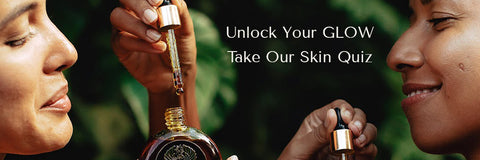
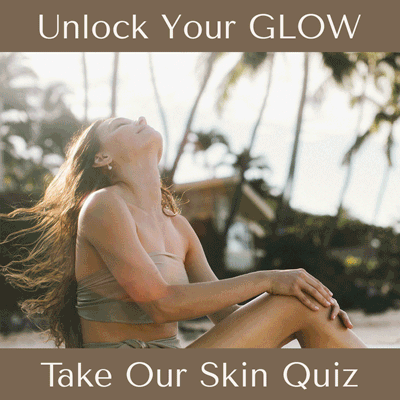
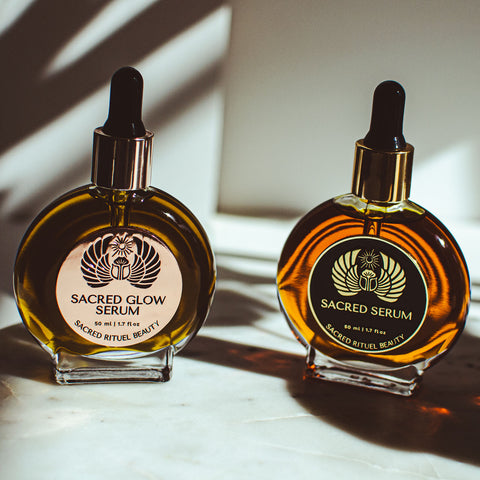
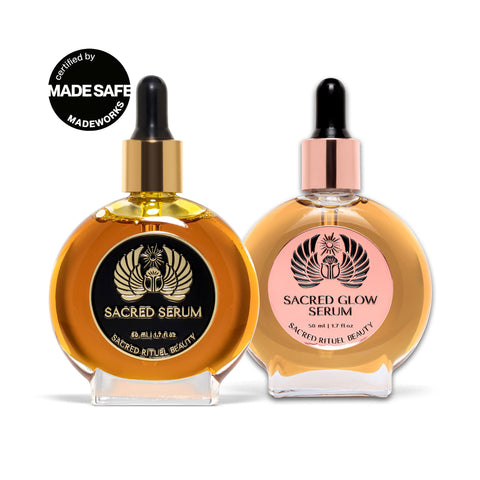
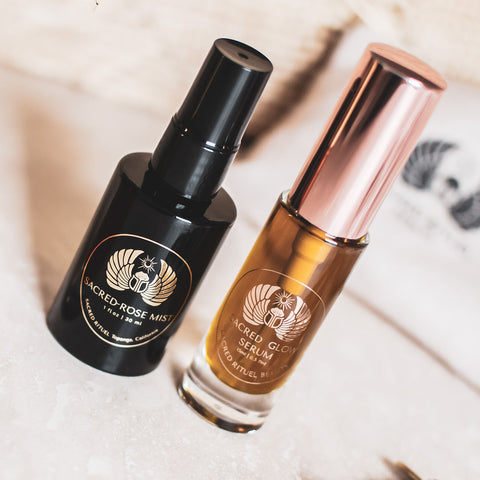
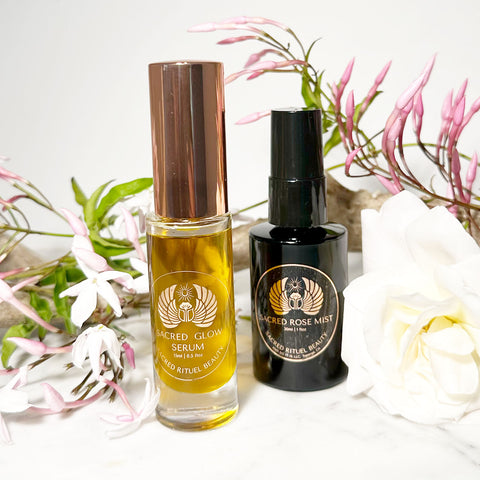
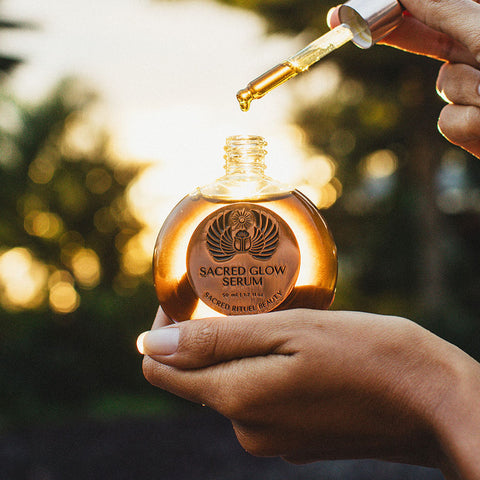
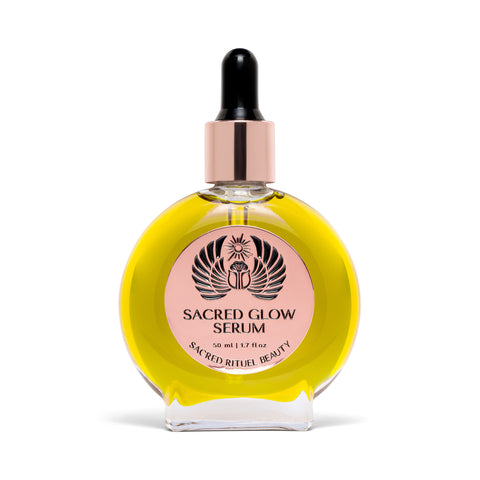

Comments (0)
There are no comments for this article. Be the first one to leave a message!